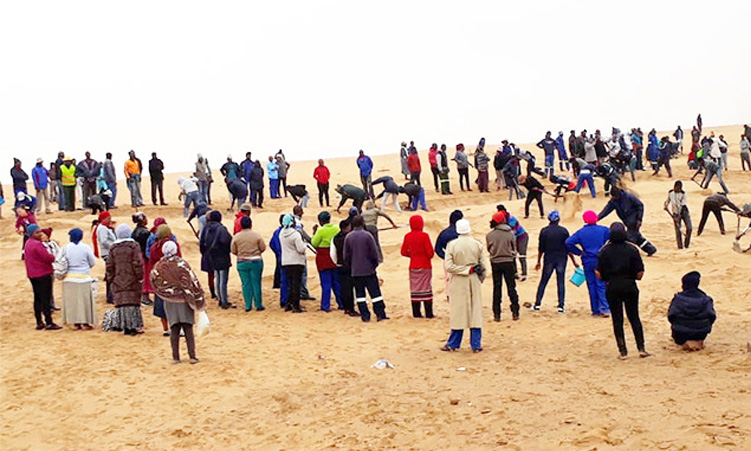Oil prices fell in early Asian trade after Iran’s reprisal attack on Israel over the weekend.
Brent crude – a key benchmark for oil prices internationally – was lower but still trading close to $90 a barrel on Monday morning.
Prices had already risen in expectation of action by Iran, with Brent crude nearing a six-month high last week.
Israeli Defence Minister Yoav Gallant has said the confrontation with Iran is “not over yet”.
“Clearly, the oil market does not see the need to factor in any additional supply threat at this point,” energy analyst Vandana Hari said.
Brent crude may well fall below the $90 mark, but a sizeable pullback is unlikely as traders remain focused on the risks associated with the conflicts in Gaza and Ukraine, she added.
Analysts also said Israel’s reaction to the attack will be key to global markets in the days and weeks ahead.
“I think we’ll see naturally volatility. If there was to be some sort of counter-move by Israel, then that would, I think, rocket energy markets very much to the upside,” Peter McGuire from trading platform XM.com told the BBC.
Share markets in the Asia-Pacific region also slipped on Monday as investors weigh the impact of the attack.
The Hang Seng in Hong Kong, Japan’s Nikkei 225 and the Kospi in South Korea were all lower, while China’s Shanghai Stock Exchange Composite was more than 1% higher.
The price of gold edged higher, to hover near record highs, trading close to $2,400 an ounce.
Gold is often seen as a safe investment at times of uncertainty and rose sharply ahead of this weekend.
Iran launched drones and missiles towards Israel at the weekend after vowing retaliation for an attack on its consulate in the Syrian capital Damascus on 1 April.
Israel has not said it carried out the consulate strike, but is widely believed to have been behind it.
At the end of last week, the price of Brent crude touched $92.18 a barrel, the highest since October, before falling back to close at $90.45.
Iran is the seventh largest oil producer in the world, according to the US Energy Information Administration, and the third-largest member of the Opec oil producers’ cartel.
Analysts say that a key issue for the oil price going forward is whether shipping through the Strait of Hormuz will be affected.
The Strait – which is between Oman and Iran – is a crucial shipping route, as about 20% of the world’s total oil supply passes through it.
Opec members Saudi Arabia, Iran, the UAE, Kuwait and Iraq send most of the oil they export through the Strait.
On Saturday, Iran seized a commercial ship with links to Israel as it passed through the Strait of Hormuz.
Stay informed with The Namibian – your source for credible journalism. Get in-depth reporting and opinions for
only N$85 a month. Invest in journalism, invest in democracy –
Subscribe Now!










